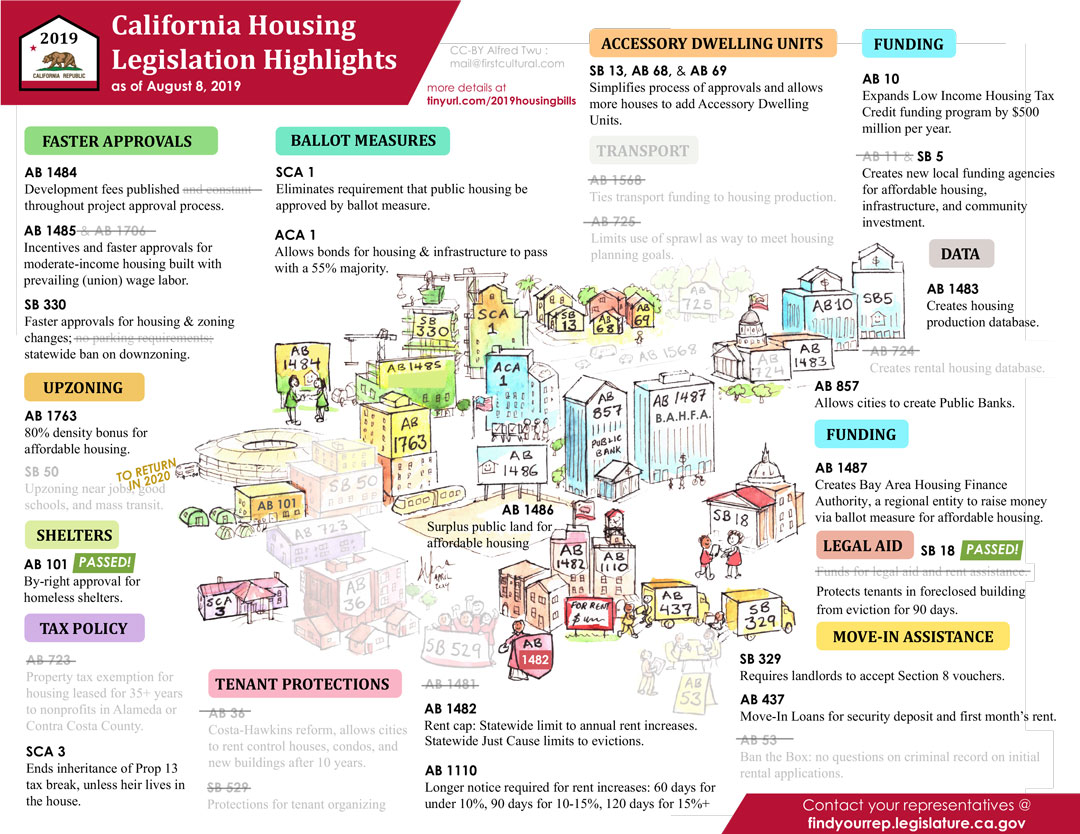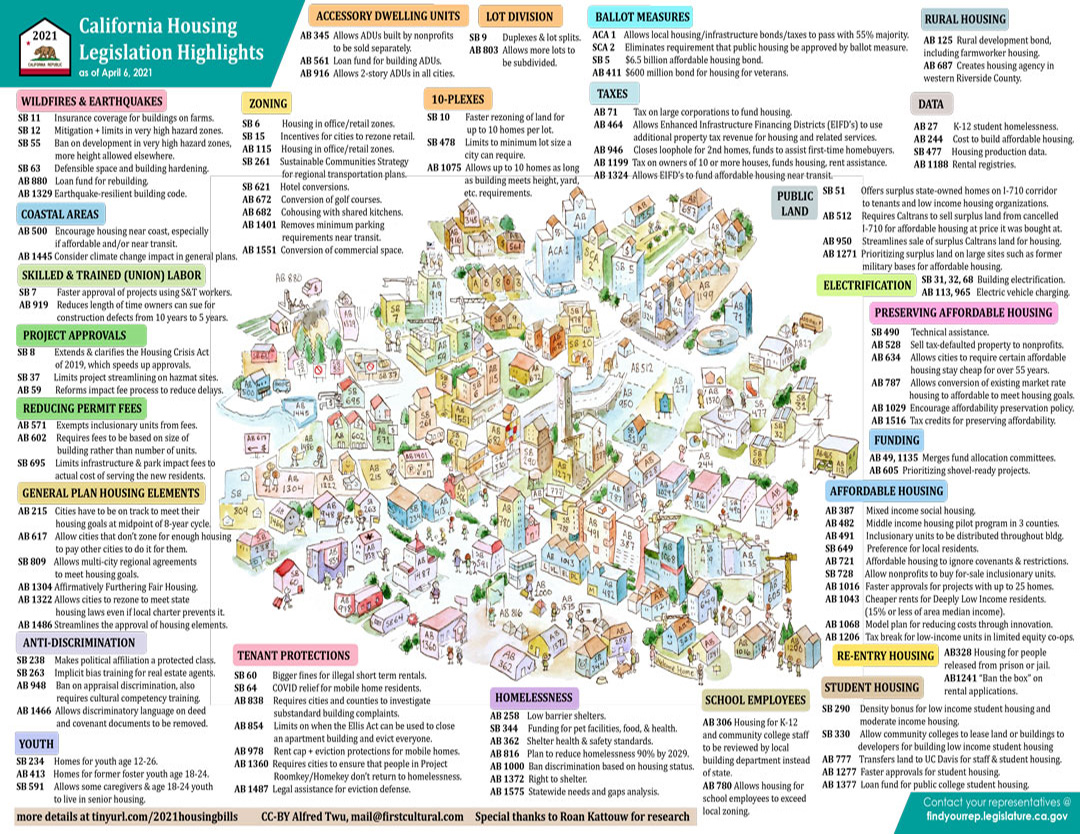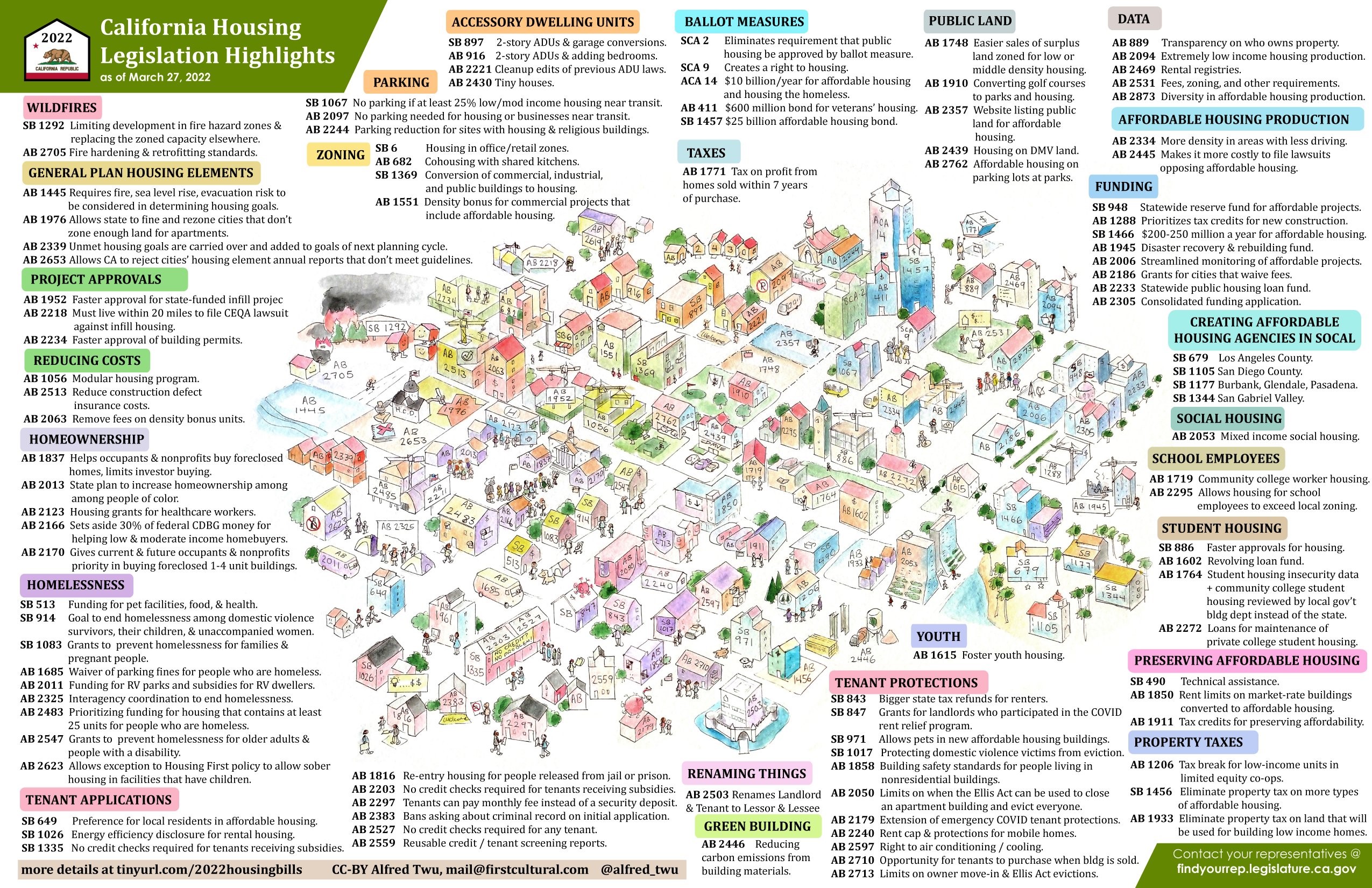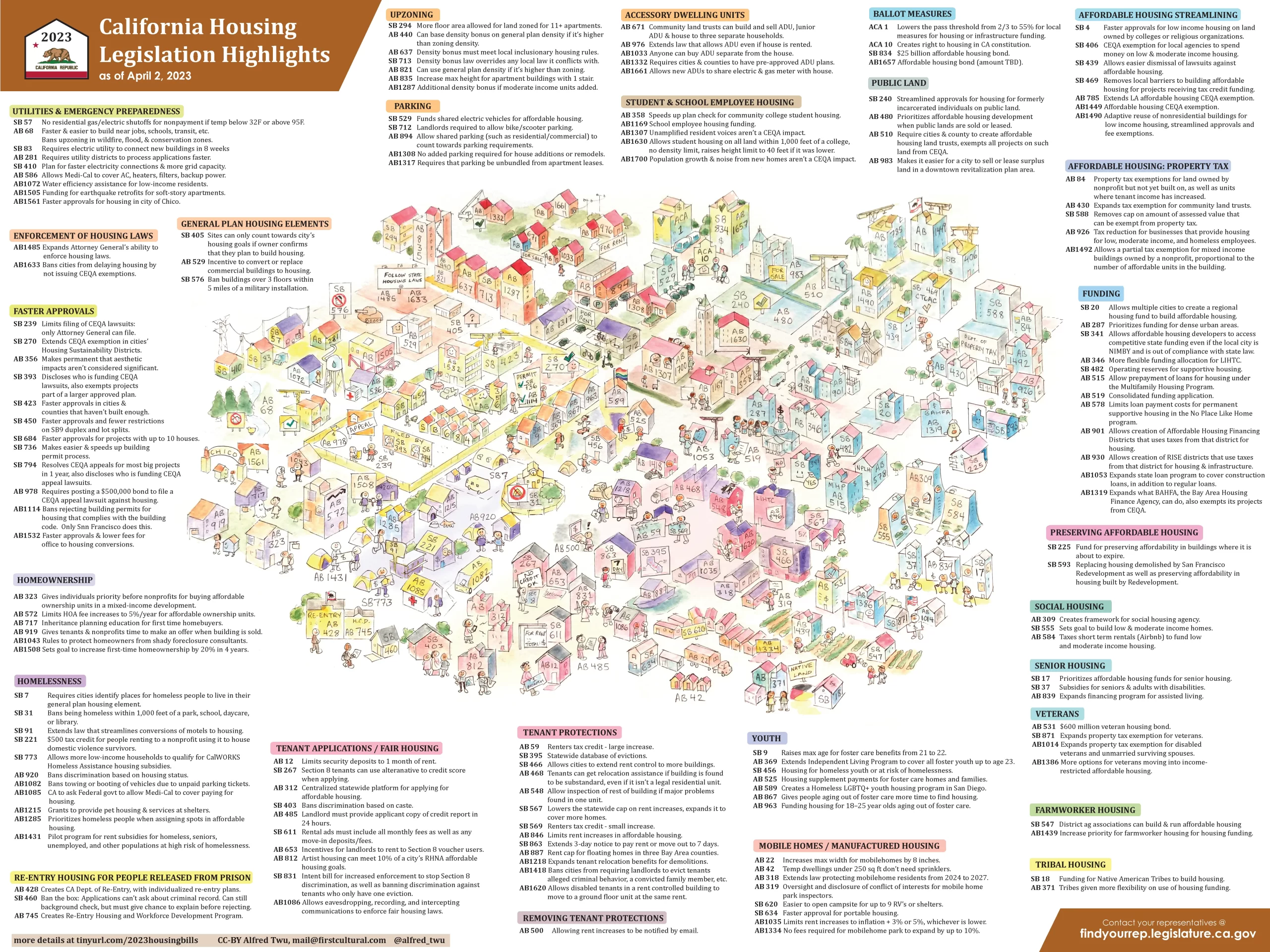
Housing Bills
Make Calls and Send Letters to the Legislature
You can call or submit letters as an individual or as part of your neighborhood, homeowner, or renter group. Forward to others. Leverage!
- Instructions for Action: Includes background information, directions, committee members’ names and contact info, and a sample script
- Sample Letters: You have access to the Catalysts’ letter as a word.doc so you can remove our logo, edit, cut & paste, make improvements of your own, and submit them through the legislative portal. Occasionally we’ve included a letter from the League of CA Cities or Livable California.
- Staff Analysis: Includes the committee staff report and a list of organizations in support and opposed to the bill.
- For a detailed list of bills and analysis please see the Livable California or League of California Cities websites.
- For more information about the legislative process and instructions on how to submit letters via the Legislative Portal, go to our Legislation Learning Map.
California Housing Legislation Highlights 2019-2022
Download a .PDF of these images here.




